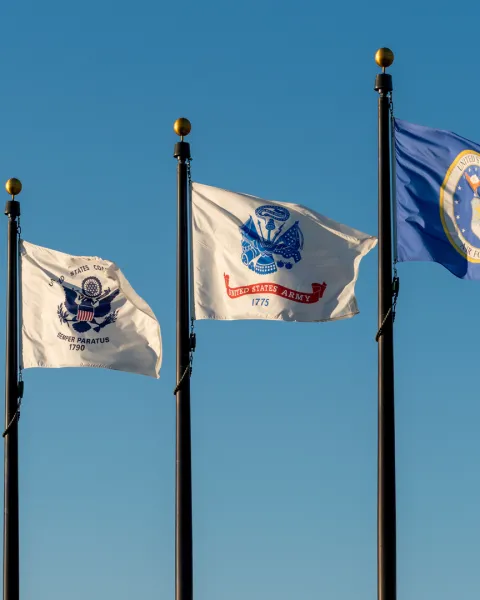Continuing its efforts questioning the constitutionality of the use of race in higher education admissions, Students for Fair Admissions (SFFA) has filed a lawsuit in the District of Maryland against the U.S. Naval Academy on October 5, 2023. The lawsuit was filed just months after the U.S. Supreme Court ruled unconstitutional similar programs on June 29, 2023.
Supreme Court Ruling’s Impact on Military Academies
In its June 2023 decision, the Supreme Court held the schools’ affirmative action programs violated the Equal Protection Clause of the Fourteenth Amendment. The Court declined to overturn its 2003 decision in Grutter v. Bollinger, which held that consideration of an applicant’s race as one factor in admissions policy did not violate the Constitution. The Court nevertheless determined the schools’ program fell “short of satisfying the burden” that their programs be “‘sufficiently measurable to permit judicial review’ under the rubric of strict scrutiny.” It declared, “‘Classifying and assigning’ students based on their race ‘requires more than … an amorphous end to justify it.’”
Significantly, in a footnote, the Court expressly declining to opine on the use of race in admissions within the Nation’s military academies, noting that the “opinion [] does not address the issue, in light of the potentially distinct interests that military academies may present.”
The footnote appeared to respond to a friend-of-the-court brief from the highest leadership of each of the Nation’s four armed services. The brief contended, “Diversity in the halls of academia directly affects performance in the theaters of war.” It outlined the specific interests of the military in cultivating “a diverse, highly qualified officer corps.” It emphasized the military’s unique interest in maintaining diverse leadership, the absence of which would “seriously undermine its institutional legitimacy and operational effectiveness.” The brief also explained that the military’s international presence and engagement abroad with both foreign military and civilians “requires diversity in the officer corps.”
The Court did not address whether these interests and goals are “sufficiently measurable.”
The Lawsuit
In its Complaint, SFFA questioned the measurability of the need for diversity proffered by the Naval Academy. SFFA also filed a similar complaint against West Point.
In its Complaint, SFFA outlined the highly competitive and unique admissions process for the Academy, enrolling slightly fewer than 1,200 midshipmen in each class. According to the Complaint, the admissions process involves two stages: (1) a medical examination and physical fitness test, along with a nomination from a member of Congress, the vice president, the president, or the secretary of the Navy; and (2) acceptance by the Academy’s admissions office. SFFA claims that this second stage unconstitutionally considers race. SFFA specifically called into question the Academy’s “efforts to racially balance the incoming classes with surgical precision” and noted the “great lengths” taken to achieve such balance.
In relying on the Fifth Amendment’s equal protection principles, which apply to the federal government and its institutions, SFFA claims the Academy’s admissions policy must survive strict scrutiny and be narrowly tailored to further compelling government interests. According to SFFA, the compelling government interests proffered by the Academy boil down to two propositions: “1) that racial preferences enhance the military’s internal functioning; and 2) that racial preferences enhance the military’s functional capacity by fostering internal confidence within the ranks and by bolstering its external legitimacy which, in turn, increases societal trust and recruitment efforts.”
SFFA contends that neither of these interests (like the “educational benefits of diversity” proffered in the Supreme Court cases) can be subjected to meaningful judicial review, arguing there is no way for courts to measure these goals and no basis for assessing when they have been achieved.
Next
On October 6, 2023, just one day after filing its Complaint, SFFA filed a motion for preliminary injunction, seeking to enjoin the consideration of applicants’ race in making admissions decisions. The Academy has not yet responded to SFFA’s Complaint or motion.
The Academy’s success in maintaining its use of race in admissions will hinge on its ability to argue that the policy is narrowly tailored to achieve compelling government interests, which cannot be achieved by alternative, race-neutral policies. The outcome of this litigation could have implications for other higher education institutions and government organizations (including federal contractors).
Please contact the Jackson Lewis Higher Education Group with any questions.
© Jackson Lewis P.C. This material is provided for informational purposes only. It is not intended to constitute legal advice nor does it create a client-lawyer relationship between Jackson Lewis and any recipient. Recipients should consult with counsel before taking any actions based on the information contained within this material. This material may be considered attorney advertising in some jurisdictions. Prior results do not guarantee a similar outcome.
Focused on employment and labor law since 1958, Jackson Lewis P.C.’s 1,000+ attorneys located in major cities nationwide consistently identify and respond to new ways workplace law intersects business. We help employers develop proactive strategies, strong policies and business-oriented solutions to cultivate high-functioning workforces that are engaged and stable, and share our clients’ goals to emphasize belonging and respect for the contributions of every employee. For more information, visit https://www.jacksonlewis.com.



